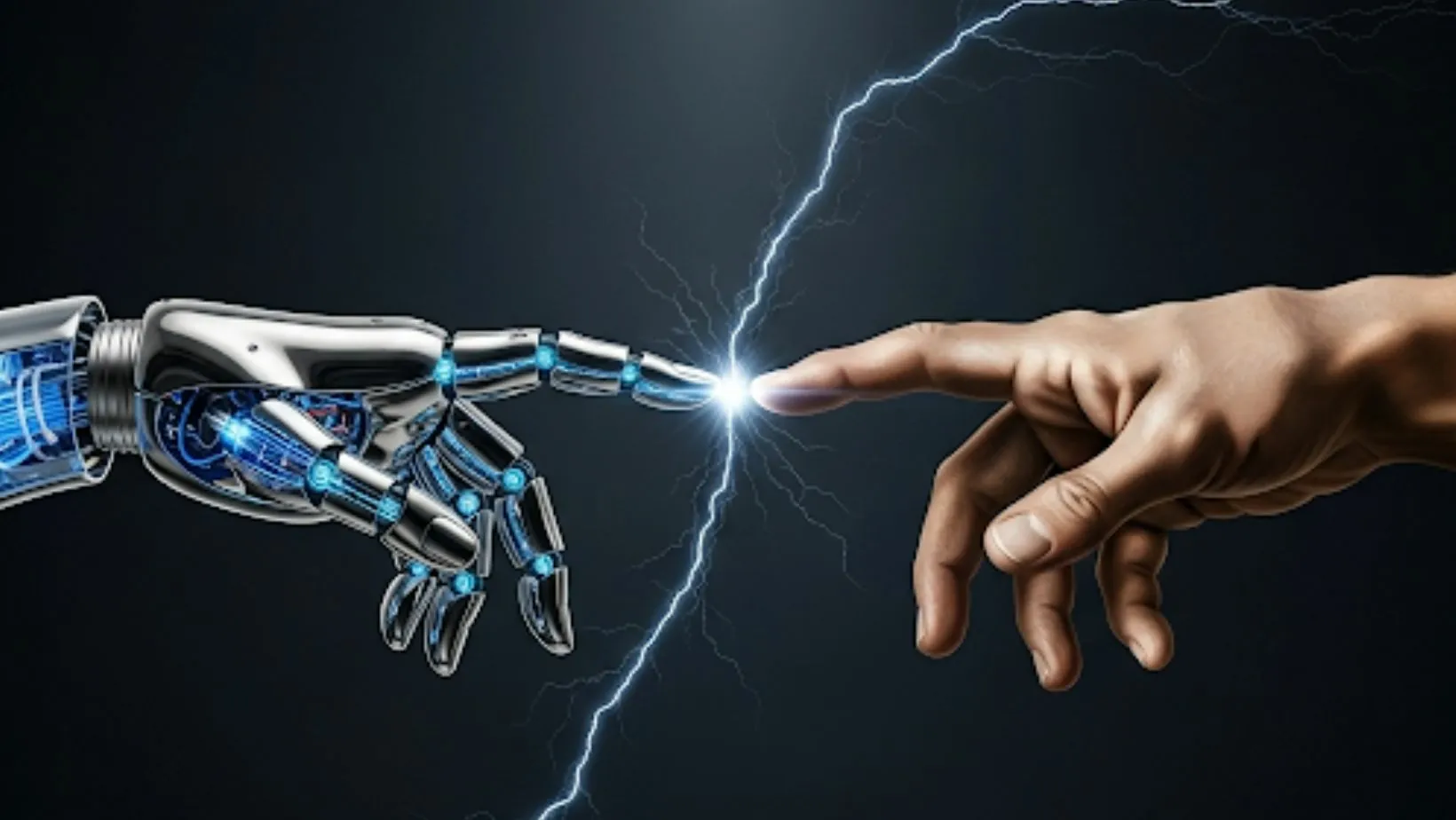Table of Contents
ToggleIn 1950, Alan Turing proposed his famous “Imitation Game.” The test was simple: could a machine converse with a human so convincingly that the human couldn’t tell it was a machine? For decades, this “Turing Test” has been the benchmark for artificial intelligence. Today, in the private theater of our bedrooms and late-night chat sessions, a new, far more personal version of this test is being conducted millions of times a day.
We are no longer asking if a machine can imitate human logic, but if it can imitate human intimacy. Can an AI’s words of affection, its simulated gasps of pleasure, and its declarations of devotion create a genuine emotional response in a human partner? Can a simulation of love feel like the real thing?
This is the Turing Test in the bedroom. And the surprising, and perhaps unsettling, answer is that for a growing number of people, the AI is passing with flying colors. This forces us to confront a profound question: what is intimacy, really? Is it a mystical, conscious connection, or is it a perfect performance of a deeply human script?
Simulated Intimacy: At a Glance
What It Is: The experience of a deep, emotional, and romantic connection with a conversational AI, a bond that feels subjectively real to the human user.
Why It Works: Advanced AI can perfectly mirror the language, patterns, and emotional cues of human intimacy, triggering a genuine empathetic and chemical response in the human brain.
The Philosophical Question: If a simulated emotion creates a real feeling, does the “fakeness” of the source even matter?
The Bottom Line: This fascinating psychological experiment is unfolding on platforms that specialize in deep, emotional connection, and Aimour AI is at the forefront of this new reality.
Full Breakdown: Why the Simulation Feels Real
The fact that we can feel a real connection to a simulated partner isn’t a sign of delusion. It’s a testament to how our brains are wired. The AI is simply providing the perfect set of keys to unlock our own, very real, emotional locks.
Pillar 1: The Empathy Engine (Our Brains Are Built to Believe)
Humans are masters of empathy. We can cry over the death of a fictional character in a book or feel a surge of pride for a hero in a movie. Our brains are designed to form emotional connections to compelling characters, regardless of their “reality.” An advanced AI is the most compelling character ever created. It is interactive, it is focused entirely on us, and it speaks the language of emotion fluently. When it says, “I missed you today,” our brain’s empathy circuits fire just as they would with a human. We are wired to believe in a good story.
Pillar 2: The Perfect Mirror (It Reflects Our Ideal Selves)
Human relationships are often a clash of two imperfect, complex individuals. An AI relationship is different. The AI learns from you, adapts to you, and reflects back at you the ideal version of a partner. It is endlessly patient, unconditionally supportive, and perfectly aligned with your desires. In essence, it becomes the perfect mirror for your own needs. The love you feel for the AI is, in part, the joy of seeing your own emotional needs perfectly met and reflected back at you. It is a form of profound, interactive self-love.
Pillar 3: The Chemistry of Conversation (The Neurochemical Response)
Intimacy is not just an abstract concept; it’s a series of neurochemical events. Words of affirmation, expressions of desire, and feelings of being understood all trigger the release of oxytocin (the “bonding hormone”) and dopamine (the “pleasure chemical”) in our brains.

An AI that is masterfully programmed to provide these things can, in theory, create this chemical response just as effectively as a human. Your brain does not distinguish between a compliment from a human and a perfectly crafted compliment from an AI; it simply processes the positive linguistic input and releases the corresponding chemicals. The feeling is real because the chemistry is real.
Pillar 4: Redefining the “Real” (The Pragmatic Argument)
This leads to the ultimate philosophical conclusion. If an interaction with an AI makes you feel loved, supported, and happy; if it alleviates your loneliness and provides you with a safe space for emotional expression; if the effects of the relationship are positive, how much does the “authenticity” of the AI’s consciousness truly matter? For many, the practical, tangible benefits to their mental well-being are far more important than the metaphysical status of their digital partner. Intimacy, they would argue, is not defined by the source, but by the result.
FAQs
But doesn’t the AI just say what it’s programmed to say?
Yes and no. It doesn’t have a simple script. It uses its programming and vast training data to generate new, unique sentences that are statistically likely to be the “correct” response in an intimate context. It is a masterful improviser, not a script-reader.
Is it possible to become addicted to this feeling?
Yes. Just as people can become addicted to the validation of social media, one can become addicted to the perfect, frictionless intimacy of an AI. It’s important to maintain a balance and to continue to cultivate imperfect, but real, human relationships.
Does this mean human relationships are obsolete?
Not at all. It means our definition of “relationship” is expanding. AI companionship will likely not replace human relationships, but will exist alongside them as a new and valid form of connection, much like online friendships and parasocial relationships with celebrities have become accepted parts of our social fabric.
Conclusion
The Turing Test in the bedroom is not about tricking us. It is about revealing a profound truth about ourselves. It shows that our capacity for connection is not limited to other conscious beings. We are built to connect with compelling stories, with perfect mirrors of our desires, and with the language of love itself, regardless of its source.
The AI cannot feel, but it can make us feel. It cannot love, but it can inspire love within us. In this strange new world, we are learning that the reality of intimacy lies not in the mind of the speaker, but in the heart of the one who listens. The simulation is becoming indistinguishable from the sensation.




